Living a connected life leads one to take a different view. Life is less a quest than a quilt. We find meaning, love, and prosperity through the process of stitching together our bold attempts to help others find their own way in their lives. The relationships we weave become an exquisite and endless pattern.
― Keith Ferrazzi, author of Never Eat Alone: And Other Secrets to Success, One Relationship at a Time
I have long been a keen student of the essential tactics and simple engagement approaches that are critical for building effective business relationships both inside and outside our organizations. Nothing gets better simply because we wish it, and this certainly applies to how we approach relationships in the business world. There are no magic answers and few shortcuts to being great at relationship building. Improvement takes hard work, self-discipline, intentionality, and commitment. It takes a willingness to change old habits and develop new approaches. Also, it takes the recognition that sometimes focusing on the basics and embracing simplicity often work best.
Essential Tactics
Here are ten essential tactics I have found to be the most consistently helpful in successfully forging effective business relationships over my career:
- Embrace your personality style. I have known for decades that I am a high-functioning introvert. Instead of following conventional wisdom and attending countless anxiety-producing networking events, I have long pursued a one-on-one approach to meeting new people as well as meeting my existing network over coffee or lunch where I am more comfortable. I also try to end my meetings by 4:30 p.m. each day and get back to my home office to write, catch up on administrative work, exercise and savor the alone time I need each day before engaging with my family.
- Leverage LinkedIn. I have a simple rule: Everyone I encounter in person or by phone receives an invitation (always with a personal note providing context) to join my LinkedIn network within twenty-four hours of contact. This self-discipline helps me continuously add to my network with business professionals I encounter. LinkedIn provides a well-organized and convenient way to keep track of your network and provides easy access to their background information. The LinkedIn app is especially helpful when you need quick access to background information on your phone about someone you are meeting.
- Nurture the network. Nurture existing relationships at the same time you are expanding new ones. Much like a garden, healthy relationships must be maintained, and this takes work. The worst thing we can do is reach out to someone in our hour of need and realize that we failed to maintain the relationship. I keep a spreadsheet with every client, prospect, and business friend alphabetically listed with contact information and a section for notes. This helps me keep track of my large network, stay on top of required follow-up and future meetings I need to schedule.
- Put everything on the calendar. Everything important in your life is likely scheduled, right? Why not treat your approach to business relationships the same way? My meetings, reminders about the topics of upcoming discussions, follow-up items, birthdays, anniversaries, etc., are all part of my calendar.
- Rethink how you spend your time. If you see little time for building business relationships on your busy calendar, let me challenge you a bit. There are five opportunities a week for coffee or breakfast, five opportunities a week for lunch, and five opportunities for dinner. Start utilizing at least three or four of these fifteen opportunities each week to meet with someone new (or nurture an existing business relationship). You have to eat, so why not spend this time with another professional and accomplish two objectives during this time?
- Make it easy for them (not you). If you are in “exploring” mode with a new business contact, if you make the meeting time and venue as convenient as humanly possible for them, they are more likely to attend. This may mean before work, at lunch, or after work. In my experience, early coffee near their office is almost always the most convenient time and place. Your convenience is not as important as theirs in the early phases of relationship building.
- Embrace the basics. Always be courteous. Always be grateful. Acknowledge that you know the other person is investing valuable time in meeting you and you appreciate this. The basics always work, and this is as basic as it gets! Follow up in a timely manner with a thank-you note (an email is okay, but not as memorable).
- Focus on relationships, not acquaintances. Meeting someone only once at best makes them an acquaintance, not a relationship. This is one of the reasons I cringe at the thought of collecting fifty business cards at networking events. You have to invest energy and thought into having multiple meetings with someone that you both see as beneficial.
- Be personal. Meeting someone for the first time? Not sure what to say? Do you desire a meaningful conversation about real issues and not the usual surface or politically correct dialogue? Be transparent first. Get personal (with discernment). Be authentic. If you desire someone to open up to you, you should be open about your life first. In effect, this gives the other person “permission” to be open about topics outside of work if you take the first step in sharing.
- Always make deposits. I encourage my clients to view their business networks as a “relationship economy.” In this economy, you should be consistently offering to help and investing (making deposits) in the people in your business network. A day will come when you may be in need of help, a favor, or maybe just a listening ear, and you will have an easier time making a “withdrawal” if you have been making deposits along the way.
A Simple Three-Step Approach to Engagement
Before my father retired, he was a master of building business relationships and was well-respected and trusted by all who knew him throughout his long career. I remember well the advice he gave me many years ago when I graduated from the University of Georgia and was about to begin my own business career. He told me to think about three basic approaches when I was encountering new professionals as I began my first post-college job:
- Be helpful; serve their needs.
- Be sincerely curious.
- Always add value.
It took me a few years to fully grasp the importance of what he told me, but his sage advice is at the core of how I have approached my relationships over the course of my career. Here is what my father’s simple wisdom has come to mean to me today.
Be helpful; serve their needs: My father’s first tip was to approach everyone with a servant’s heart. My parents were servant leaders throughout their lives, so I was fortunate to have this behavior modeled for me from a very young age. When you make your efforts about sincerely helping others and serving their needs, you will find relationship building to be a worthwhile, fulfilling experience that will ultimately come back to you in positive and unexpected ways. When it is all about you and your needs, people see through that, and your attempts at relationship building can become a miserable, laborious experience on many levels. Sincerely ask, “Is there anything I can do to help you?” or simply do something for them out of generosity with no expectation of return. As my father used to say, “Always make it about them, not about you.”
Be sincerely curious: My father’s second tip stemmed from his understanding that meeting a lot of senior businesspeople might make me feel intimidated and nervous. He encouraged me to be genuinely curious about others as a helpful way to counter my lack of experience and my misguided view that I needed to have all the answers. I have learned that people find us more interesting when we ask them questions. They appreciate the humility when someone genuinely wishes to learn something new or just desires to know them better. If you’re stuck on knowing the perfect thing to say, ask questions. If you want to impress a client, new friend, or colleague and learn important information about them, ask questions. Being curious takes the pressure off and stimulates a more engaging and balanced conversation. We would all be well served to embrace humility and do less telling and more asking.
Always add value: My dad’s final tip was a little difficult for me to understand when I was twenty-one, and it took me a few years to finally get it. He encouraged me to always approach every meeting with the mindset that I owned the responsibility for the other person to feel the meeting was well worth their time. He encouraged me to find ways to add value to every conversation or meeting. Today, this concept of adding value takes many forms: being a good listener, offering helpful advice, making a connection to someone in my network, giving the gift of a book, or following up with a helpful article related to our conversation. This particular tip, when practiced well, almost always generates numerous follow-up meetings that lead to strong relationships and even close friendships.
This simple approach to engagement and the “essential tactics” I shared earlier have proven to be invaluable in my desire to build authentic business relationships. These concepts work well with internal company relationships as well as with those outside your organization. Don’t over complicate or add unnecessary layers to relationship building. Develop a simple and actionable approach that works for you. Just be yourself, be helpful, be curious, and add value while utilizing the tactics I have shared. I promise this ongoing investment in relationship building will be one of the most rewarding and satisfying efforts of your career.
Pick one of the essential tactics and make it your focus this week. Evaluate the impact this has on your relationships and then pick another to focus on the following week. Keep doing this until you have tried them all.
*Adapted from Chapter 15 of Essential Wisdom for Leaders of Every Generation by Randy Hain








